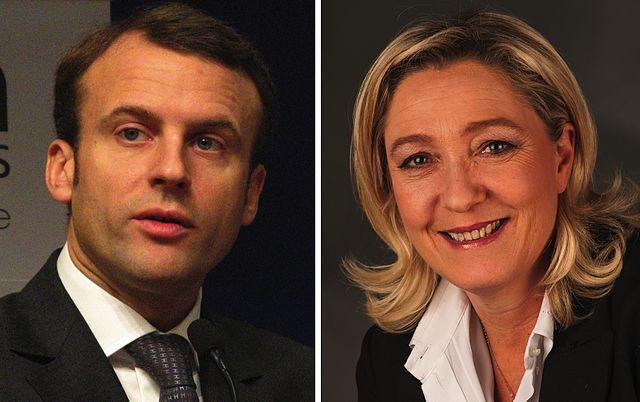Marine Le Pen, leader of the far-right National Rally expected to gain a significant foothold in the upcoming French parliamentary elections, announced Monday that she would ensure cooperation with President Emmanuel Macron if her party succeeds. This statement caused French stocks to rebound after a period of instability, with the market initially rising 1% before fluctuating at midday and ultimately closing higher. The bond market saw minor fluctuations.
President Macron's call for emergency elections later this month had previously sent shockwaves through the market, leading to a $258 billion loss in French stock market value last week. This turmoil allowed the UK to surpass France as Europe's largest stock market. The CAC 40 index, which had reached a historic high just a month ago, saw its 2024 gains erased. The euro-denominated junk bond index, with nearly one-fifth of its constituents being French companies, widened to its highest spread since early April.
Initially, traders reacted positively to Le Pen's commitment not to undermine Macron, although market sentiment remained fragile ahead of the first round of voting on June 30. Citigroup's downgrade of European stocks, citing "heightened political risks" among other factors, contributed to the volatility, with major European indices swinging between gains and losses.
The CAC 40 index briefly rebounded 1% on Monday before settling near its lowest level since January, closing up around 0.6%. French government bond yields rose again, maintaining a stable spread with their German counterparts.
Analysts cautioned that while the stock market might experience some short-term consolidation, the lack of clarity in the National Rally's economic policies means that significant uncertainty persists, advising investors to steer clear for now.
Last week's market correction extended to broader European equities, with the Stoxx Europe 600 index suffering its worst weekly performance since October. On Monday, the index hovered near the flatline.
However, several officials and strategists argued that the market downturn was overstated. European Central Bank Chief Economist Philip Lane noted that the observed market movements represented a repricing rather than disorderly dynamics. Some analysts suggested that concerns over the far-right's influence were exaggerated and expected the market to stabilize post-election.
Despite a sharp rise in an index reflecting the risk of France exiting the eurozone last week, it remained well below the levels seen in 2017 when Le Pen was advocating for EU withdrawal. The National Rally has since moderated its stance on leaving the EU.
Strategists pointed out that populist politicians often gravitate towards the center once in power, a sentiment fueled by Le Pen's recent comments.
Nevertheless, foreign investors remain wary of the political risks emanating from the French situation. This apprehension has blurred the traditional distinctions in European debt rankings, with French bonds now trading on par with those from countries at the heart of the European debt crisis. For instance, Portuguese bonds currently yield less than comparable French bonds, and the spread between Spanish and French 10-year yields has narrowed to just 11 basis points, the smallest gap since 2008. Investors have increasingly demanded higher compensation for holding French debt due to its significant burden.
The European Commission is expected to initiate an excessive deficit procedure against France this week, pressuring the country to align its public finances with EU regulations.






